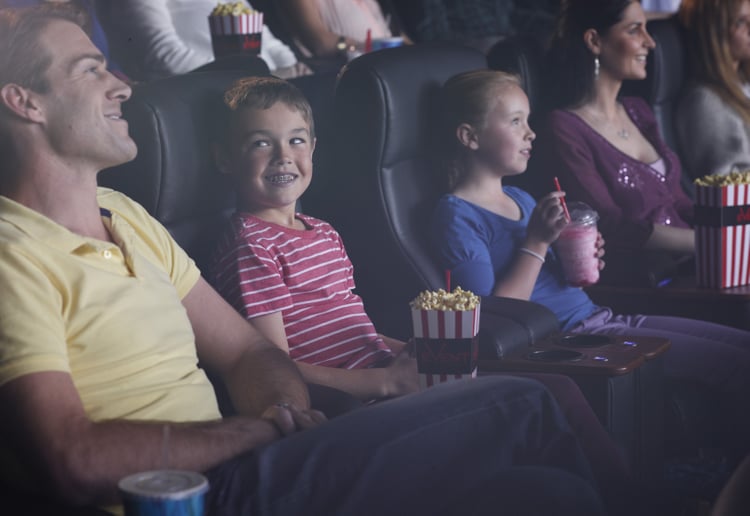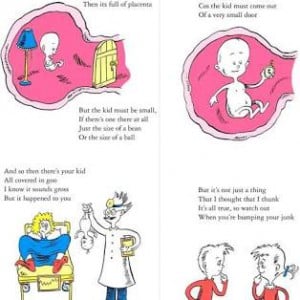With the majority of Aussie kids spending more than the recommended two hours per day looking at a screen, we’d say the more positives the better.
So, what can the humble movie really teach our kids?
Child and Educational Psychologist Andrew Greenfield shares the real lessons our kids can learn from a bit of screen time.
THE LESSONS LEARNT
Take the Grinch for example, while it’s a Christmas movie, the key themes of The Grinch extend themselves beyond the festive season, celebrating all that is good about generosity and kindness and all that is bad about self-centeredness and egocentricity.
As the movie plays out you see the famous green Grinch transition from a spiteful, sorrowful character to a cheerful member of the community with a new-found sense of belonging. This transition represents important lessons about inclusion and generosity, especially at a time that most children associate with receiving.
THE BENEFITS OF GENEROSITY AND KINDNESS
So, what are the benefits of children seeing a positive example and outcome of generosity and kindness, and how can this help in their personal development?
Greenfield argues that a positive example shown through a medium and storyline they can understand, can be beneficial in helping children to identify positive personal characteristics and actions and the impact they can have on themselves and others. “Children learn most of these skills from their parents but it is undoubtably beneficial to have a third party, who they are engaged with, reinforcing these messages in an entertaining way,” says Greenfield.
Studies suggest that the ‘warm glow’ that often follows the act of giving may be observed at a very early stage in a child’s development demonstrating that even at a young age, children can experience an increased sense of happiness as a result of a positive act. Kindness and generosity also help to improve a child’s self-esteem, with Greenfield explaining that children experience a ‘helper’s high’ when they do a good deed leading to an increased sense of pride and well-being and in turn self-esteem.
“Along with increased happiness and self-esteem, generosity and giving to others in particular helps to establish a sense of gratitude. By helping others, children begin to develop perspective on their situation verse others’, helping them to identify and appreciate the things the good things in their lives,” say Greenfield.
HOW TO TEACH YOUR KIDS
Taking the lessons learnt from The Grinch on the importance of generosity and kindness, Greenfield shares his tips on different approaches and methods to practice with your children:
• Demonstrate generosity yourself
Tell your child about efforts that you personally, or those that your workplace organizes to help out those in need. Share with your child the good feelings that you had in making that contribution happen.
• Practice small gestures
It is important to create small gestures to allow children to practice generosity and experience how it makes a positive impact on others and actually feels good. With repetition of these patterns, assisted by a parent, a child will start to see themselves as a generous person, and their actions will follow through.
• Act directly
While some children are naturally aware and generous, many are not. Like any other skill, generosity may need to be taught directly.
• Help them to establish a connection between doing good and feeling good
Open the door to generosity by making a connection they can understand. Help your child identify how they feel when they receive a gift and then ask for their help in making someone else feel like that.
• Managing self-centeredness
Although a difficult development trait, parents can assist children to manage egocentricity by practicing small amounts of disappointment. For example, every time you step into a store, they may expect that they are going to get a treat. Help your child learn to manage small amounts of disappointment by giving them a job to be your helper in the store.
• Phrasing is everything
Using positive language such as “yes” or “I understand that…” during the learning process will help your child to stay engaged and feel supported. Try to empathise with them and praise positive behaviour, while steering clear of negative language and tone.
The Grinch is yours to own on 4K Ultra HD, Blu-ray, DVD and Digital from Wednesday, 20 March.
Share your comments below




















-

-
-
mom268263 said
- 31 Oct 2020
-

-
-
mom81879 said
- 17 May 2019
-

-
-
mom19782016 said
- 05 May 2019
-

-
-
Kate Sander said
- 09 Apr 2019
-

-
-
mom19782016 said
- 31 Mar 2019
-

-
-
Blossom said
- 24 Mar 2019
-

-
-
mom19782016 said
- 23 Mar 2019
-

-
-
becstalou said
- 21 Mar 2019
-

-
-
Ellen said
- 19 Mar 2019

-

-
-
mom93821 said
- 19 Mar 2019
-

-
-
mom265671 said
- 18 Mar 2019
-

-
-
mom160421 said
- 18 Mar 2019
-

-
-
mom74005 said
- 18 Mar 2019
-

-
-
mom81879 said
- 18 Mar 2019
-

-
-
ashna9 said
- 18 Mar 2019
-

-
-
mom206279 said
- 18 Mar 2019
-

-
-
Mum2archer said
- 18 Mar 2019
-

-
-
mom114371 said
- 18 Mar 2019
-

-
-
mom350461 said
- 18 Mar 2019
Post a comment11:39 pm
8:16 pm
3:39 pm
1:20 pm
2:51 pm
12:21 pm
9:54 am
5:04 pm
7:56 am
-

-
-
mom93821 replied
- 21 Mar 2019 , 6:23 am
Reply5:46 am
10:43 pm
10:08 pm
9:06 pm
8:00 pm
6:58 pm
6:04 pm
3:25 pm
3:01 pm
2:28 pm
To post a review/comment please join us or login so we can allocate your points.